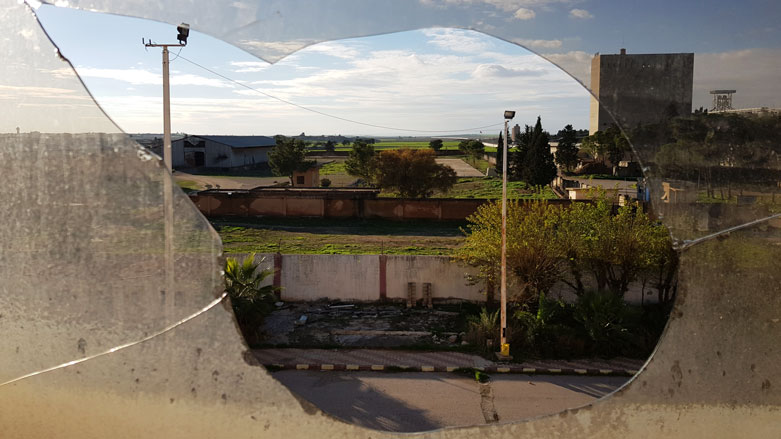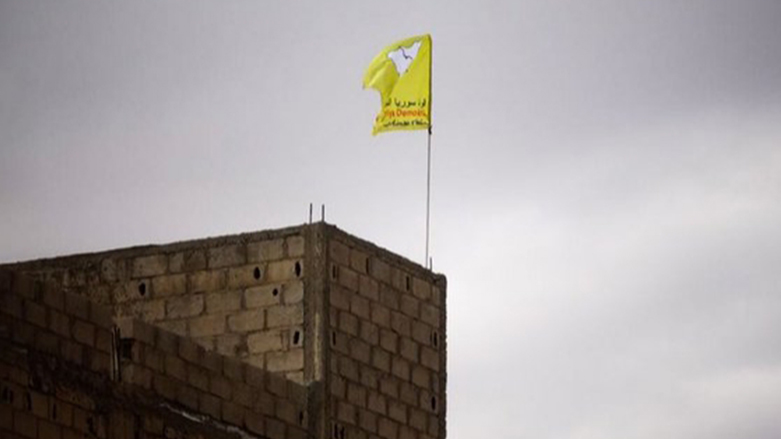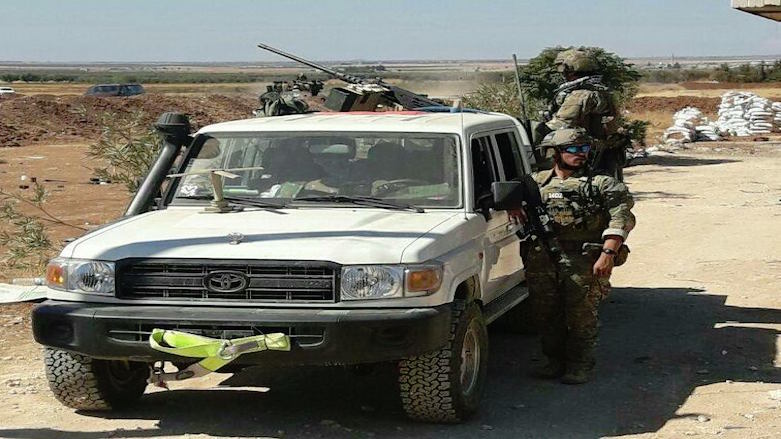Strategic Syrian town still quiet despite Turkish threats of attack

TAL ABYAD (Kurdistan 24) – Most of the shops were closed on Friday in the northern Syrian town of Tal Abyad. One man who lives near the Turkish border was enjoying himself, smoking a hookah and talking to his wife. In the streets of Tal Abyad, the sounds of a wedding could be heard.
It does not look as one might expect a town on the verge of a Turkish invasion to appear.
On the way to Tal Abyad from nearby Ain Issa to the south, a police officer told those passing not to worry; that, “Erdogan is just dreaming.”
However, many people are taking recent threats by Turkish president Recep Tayyip Erdogan very seriously. On Wednesday, he announced that he would launch an operation in the east of the Euphrates within a “few days.”
Senior Kurdish officials also say there is a real threat.

Some civilians in Tal Abyad were afraid to make comments to the media; residents often have relatives on the other side of the border.
“There is fear,” said a woman visiting from Raqqa who declined to give her name. “But hopefully, there will be nothing.”
Another woman who gave her name as Fatma added, “The people don’t want anything, they just want to live in a peaceful life.”
“There is fear from looting and killing, if they come. When the regime was here, the FSA [Free Syrian Army] groups did looting as well,” said a 28-year-old Kurdish civilian living in Tal Abyad who also asked that his real name not be used, but instead the name Ali.
He said that, although some Arabs in Tal Abyad did not like Kurds, they did not like the FSA either and do not want war.
“The people are scared and don’t know where to go, especially in winter. We don’t know what will happen.”
He continued, speaking of Turkish-backed Syrian militias that have taken part in attacks and occupations in northern Syria in recent months. “Those groups are the same as ISIS… Ahrar al-Sham is not the same as al-Qaida? You saw what happened in Afrin.”
Mohammed, aged 30 and originally from Deir al-Zor along Syria’s border with Iraq, feels strongly that Turkish troops should not come to Tal Abyad. He said, “This is not their area. There is no reason to come here.”

Others are more optimistic.
“The situation is good, there is nothing. It’s just lies,” said another Tal Abyad resident did not want his name published. He works in a local shwarma restaurant and has served as a conscript in local security forces in the past.
“There were three years of peace, and there was nothing. It’s just because Daesh [IS] is almost finished,” he said about the Turkish threats.
On Friday, Erdogan threatened again to invade, this time the town of Manbij, if the People’s Protection Units (YPG) would not withdraw from the city. Turkey has accused the group of being linked to the Kurdistan Workers Party (PKK), which has fought a decades-long insurgency against Ankara, but the YPG has denied this.

The border area itself still appears dangerous. Local police warn of possible snipers. Turkish flags on the other side of the border in the town of Akçakale are easy to spot.
Kurdish fighters escorted a number of journalists to their positions near the Turkish border.
Kawa, a 22-year-old Kurdish fighter says the Turkish army did not remove any border walls, as some have claimed, “but there are military movements, an increased number of soldiers and the digging of trenches.”
“Their movements are mainly at the night, and in the morning are trenches,” he said. “Most of the vehicles on the border are not military ones, but civilian ones.”
However, he said, his forces were ready for any kind of invasion they thought possible. “We have made all necessary preparations and we are also observing their movements on the border. Anything that will occur, we are ready for it.”
The night before, he added, surveillance aircraft of both the United States and Turkey were seen overhead.
Some civilians fear that the US could give up on the US-backed Syrian Democratic Forces (SDF), often adding that the US “follows their own interests.”
According to a Kurdish fighter named Kawa, though, “The US will not allow Turkey to invade.”
On Friday, US president Donald Trump was reported to have held a phone call with Turkish President Erdogan in what is being called an attempt to diffuse the present tension.
A US military statement released later on Friday read, "The Coalition mission in northeast Syria remains unchanged. We continue our normal operations, including observation posts in the border region to address the security concerns of our NATO ally Turkey. We remain committed to working with our partners on the ground to ensure an enduring defeat of ISIS. Any reports indicating a change in the U.S. position with respect to these efforts is false and designed to sow confusion and chaos."

Kawa said, “The US has two points [near Tal Abyad], a little bit far from here.”
According to Kawa, Tal Abyad is a strategic position, and could sever the connection between the local administration in Cizera (Hasakah) and Kobani if taken by Turkey.
“But we are ready,” he said, solemnly. “We will defend our land.”
Just a dozen or so kilometers outside of Tal Abyad, though, conscripts are manning the border. They report that, in the past two days, the number of Turkish army movements have been less visible. “They increased in the beginning, but now it seems to be less,” one fighter said.
This signals to many in Tal Abyad that US pressure is working to suppress the immediate threat of Turkish invasion.
Fighters, though, still say they are still ready for any attack that might come.
Editing by John J. Catherine


